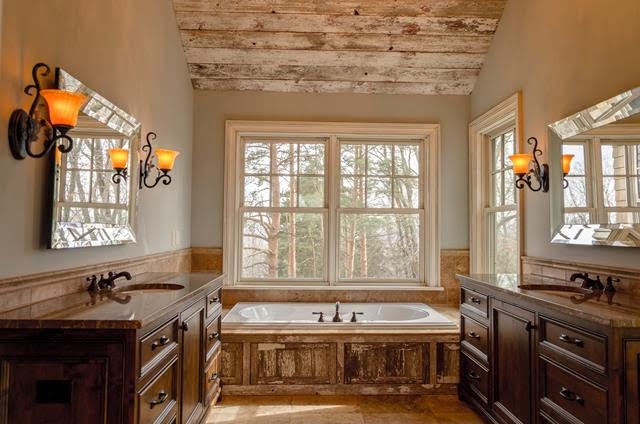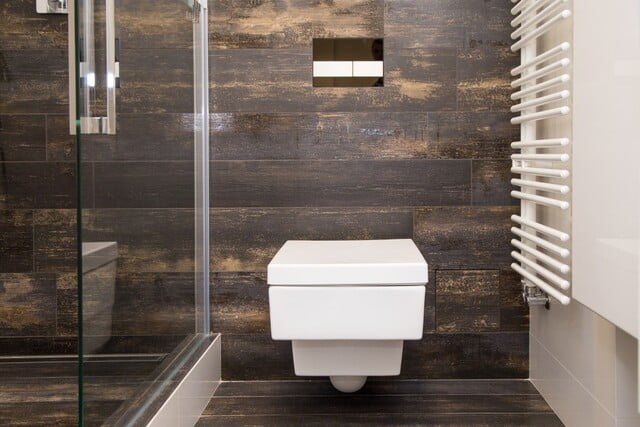Are you considering upgrading your bathroom? One of the key decisions to make is whether to have a separate shower and tub or a combined shower and tub. This choice can significantly impact the value of your home. In this article, we will explore the advantages and disadvantages of both options, current trends in bathroom design, factors to consider when making this decision, and how it can impact your home’s overall value.
The bathroom is one of the most important rooms in a home when it comes to resale value. Potential buyers often pay close attention to its condition and features. The choice between having a separate shower and tub versus a combined unit can make a big difference in how potential buyers perceive the space. This key decision can ultimately impact the final selling price of your home.
Many homeowners are uncertain about which option is best for their property. By understanding the pros and cons of each choice, as well as the impact on home value, you can make an informed decision that aligns with both your preferences and financial goals. Let’s delve into this important topic so you can confidently enhance the appeal and value of your home through strategic bathroom upgrades.
The Pros and Cons of Separate Shower and Tub
When it comes to bathroom upgrades, one of the key considerations for homeowners is whether to have a separate shower and tub or a combined shower and tub. There are several factors to consider when making this decision, including the pros and cons of each option.
One of the main advantages of having a separate shower and tub is the flexibility it offers in terms of design. Homeowners have more freedom to create a spa-like retreat with a separate shower and tub, allowing for different materials, layouts, and features in each space. Additionally, separate shower and tub setups can potentially appeal to a wider range of buyers, as some may prefer the luxury of having both options available in the bathroom.
However, there are also drawbacks to having a separate shower and tub. One significant concern is the amount of space required. Not all bathrooms have enough room to accommodate both a separate shower and tub effectively. Additionally, some homeowners may find it challenging to maintain two distinct fixtures, potentially leading to higher cleaning and maintenance efforts. It’s essential for homeowners to carefully evaluate their specific needs and constraints before opting for this setup.
| Advantages | Disadvantages |
|---|---|
| Flexibility in design | Requires more space |
| Potentially appeals to more buyers | Potentially higher maintenance efforts |
Ultimately, whether to install a separate shower and tub depends on individual preferences, available space, maintenance considerations, budget constraints, and the potential impact on home value. It’s important for homeowners to weigh these pros and cons carefully before making a decision that suits their specific needs.
The Pros and Cons of Combined Shower and Tub
When considering whether to have a combined shower and tub in a bathroom, it’s important to weigh the pros and cons of this design choice. One of the main advantages of a combined shower and tub is its space-saving feature, which can be particularly beneficial in smaller bathrooms. This dual-function fixture can also be convenient for households with children, as it allows for both bathing and showering in one area.
However, there are also some drawbacks to having a combined shower and tub. For instance, the aesthetics of this design may not appeal to all homeowners, especially those who prefer a more modern or luxurious look for their bathroom. Additionally, cleaning and maintenance can be more challenging with a combined fixture, as water stains and soap scum are more likely to accumulate in the tub area.
Another consideration when it comes to combined shower and tubs is safety. While these fixtures are versatile, they may not be as accessible or safe for individuals with limited mobility or elderly residents.
The presence of a step-in tub within the shower area can pose a tripping hazard, making it less ideal for those who require easier access to bathing facilities. It’s important for homeowners to carefully consider the needs of their household members before opting for a combined shower and tub design.
Current Trends in Bathroom Design
Bathroom design trends have evolved over the years, and staying up-to-date with the latest styles can significantly impact the value of a home. One prominent trend in modern bathroom design is the shift towards minimalist and spa-like spaces. Homeowners are increasingly opting for clean lines, neutral colors, and natural materials to create a calming and luxurious ambiance in their bathrooms.
Another popular trend is the use of smart technology in bathroom fixtures. From motion-sensor faucets to high-tech toilets with bidet functionalities, incorporating smart features not only enhances convenience but also increases the overall appeal and desirability of the space. Additionally, energy-efficient lighting and water-saving fixtures have become essential elements of contemporary bathroom design, appealing to environmentally-conscious buyers.
The incorporation of accessible design features is also gaining traction in bathroom remodeling projects. As more homeowners prioritize aging-in-place and universal design principles, features such as curbless showers, grab bars, and adjustable-height vanities are becoming standard inclusions. These modifications not only cater to specific needs but also broaden the potential buyer pool by making the space more inclusive.
| Trend | Impact on Home Value |
|---|---|
| Minimalist Spa-like Design | Elevates home value by creating a luxurious ambiance |
| Smart Technology Integration | Increases desirability and aligns with modern lifestyle trends |
| Accessible Design Features | Broadens buyer pool by catering to diverse needs |
Factors to Consider When Choosing Between Separate and Combined Shower and Tub
Space and Layout
One of the most important factors to consider when deciding between a separate shower and tub or a combined unit is the available space and layout of the bathroom. If you have limited space, a combined shower and tub may be more practical as it saves space and allows for a more efficient use of the area.
On the other hand, if you have a larger bathroom with enough space, having a separate shower and tub can be more luxurious and provide a spa-like feel.
Functionality and Convenience
Another aspect to consider is the functionality and convenience of each option. A separate shower and tub may offer more flexibility in terms of usage, allowing two people to utilize both facilities simultaneously. However, a combined unit can be more convenient for households with children or elderly individuals who may need easier access to the shower or tub.
Aesthetic Appeal
The aesthetic appeal also plays a significant role in making the decision between separate or combined shower and tub. Aesthetically, a separate shower and tub can create a more visually appealing focal point in the bathroom, especially when designed with stylish fixtures. Conversely, a well-designed combined unit can also enhance the overall look of the bathroom while providing a cohesive design element.
Considering these factors is crucial in determining whether to install separate or combined shower and tub fixtures in your bathroom. It’s essential to weigh your priorities based on your specific needs, lifestyle, available space, budget, as well as how it will impact the overall value of your home.
The Impact on Home Value
When it comes to increasing the value of your home, the bathroom is one of the most important areas to consider. One major decision to make when upgrading a bathroom is whether to install a separate shower and tub or a combined unit. This decision can have a significant impact on the overall home value, so it’s important to carefully analyze the pros and cons of each option.
Real Estate Data Analysis
According to real estate data and market trends, homes with separate showers and tubs tend to have higher resale values compared to those with combined shower and tub units. This is because separate showers and tubs are often associated with more luxurious and high-end bathroom designs, which are appealing to potential buyers. Additionally, having a separate shower and tub can give the impression of a spa-like retreat in the master bathroom, which adds value to the overall property.
Market Trends
In recent years, there has been a growing preference for luxury bathrooms among homebuyers, driving an increase in demand for homes with separate shower and tub units. Market trends also show that homeowners are willing to pay a premium for properties with upgraded bathrooms, especially those featuring spacious, modern, and well-designed separate showers and tubs.
Considerations for Home Value
While separate showers and tubs may have a positive impact on home value, it’s important to consider other factors such as local market conditions and demographic preferences. In some regions or for certain target demographics, combined shower and tub units may still be desirable. Ultimately, homeowners should carefully assess their specific market conditions before making a decision based solely on potential impact on home value.
Budget Considerations
When considering bathroom upgrades with the goal of increasing home value, it is important to understand the budget considerations associated with installing a separate or combined shower and tub. The choice between separate or combined fixtures can significantly impact the overall cost of the project, as well as the perceived value of the home in the eyes of potential buyers. Here are some key factors to consider when exploring the cost differences:
- Cost of Installation: Installing a separate shower and tub typically involves more labor and material costs compared to a combined unit. This is because separate fixtures require additional plumbing, tiling, and structural modifications to accommodate both elements.
- Maintenance Expenses: In terms of long-term costs, it’s important to consider maintenance expenses associated with separate versus combined shower and tub. Separate fixtures may require more upkeep over time, leading to potential additional expenses for homeowners.
- Resale Value: While initial installation costs are important, it’s essential to also consider the potential impact on resale value. Trends in real estate indicate that modern, luxurious bathrooms with spacious showers and standalone tubs are highly desirable among buyers, which can translate into a higher resale value for homes with separate fixtures.
Considering these budget considerations will help homeowners make an informed decision about whether to invest in separate or combined shower and tub installations. It’s essential to weigh upfront costs against long-term benefits in terms of home value and potential return on investment.
Ultimately, consulting with a professional contractor or real estate expert can provide valuable insights into the cost implications of choosing between separate or combined shower and tub installations. By carefully considering budget considerations alongside aesthetic preferences and market trends, homeowners can make decisions that enhance their home’s value while staying within their financial means.
Recommendations and Final Thoughts
In conclusion, the decision to install a separate or combined shower and tub in your home should ultimately be based on your specific needs and the current market trends. Both options have their pros and cons, and it is essential to consider factors such as space availability, personal preferences, and budget constraints. Additionally, staying updated with the latest trends in bathroom design can give you valuable insights into what potential buyers are looking for when it comes to home features.
When considering home value, it is important to keep in mind that both separate showers and tubs and combined units can add value to your property if they are well-maintained and aesthetically pleasing. However, the impact on home value may vary depending on the location and overall housing market conditions.
Real estate data suggests that having at least one bathtub in your home is generally more appealing to potential buyers, but having a separate shower in addition to a bathtub can also be an attractive feature for many.
Ultimately, homeowners should weigh the benefits of each option against their individual needs and take into account any potential cost differences. It’s advisable to consult with a qualified real estate agent or interior designer who can provide personalized recommendations based on your specific circumstances.
By carefully evaluating the pros and cons of each choice and considering professional advice, you can make an informed decision that will not only enhance your daily living experience but also positively impact the overall value of your home.
Frequently Asked Questions
Are Tub Shower Combos Worth It?
Tub shower combos can be worth it depending on individual preferences and needs. They are great for small bathrooms where space is limited, as they provide the functionality of both a shower and a tub.
For families with children or pets, a tub shower combo may be more practical as it accommodates both bathing and showering needs. However, some people may prefer the luxury and relaxation of a separate tub and shower.
Is It Better to Have a Separate Shower and Bath?
Whether it’s better to have a separate shower and bath depends on personal preferences, lifestyle, and available space. Separate showers are often preferred for their modern look, functionality, and ease of cleaning.
They also offer more design options such as walk-in showers with various amenities. On the other hand, some people still prefer having the option of taking a bath occasionally for relaxation purposes.
Does Replacing a Bathtub With Shower Devalue House?
The impact of replacing a bathtub with a shower on house value can vary based on the local real estate market and buyer preferences. In some areas, homes with only showers in the main bathroom may be less appealing to families with young children who require bathtubs.
However, in other regions where there is a trend towards smaller, more efficient living spaces or for older demographics that prioritize accessibility, replacing a bathtub with a shower may not significantly devalue the house or could even increase its appeal.

I’m thrilled to have you here as a part of the Remodeling Top community. This is where my journey as an architect and remodeling enthusiast intersects with your passion for transforming houses into dream homes.





